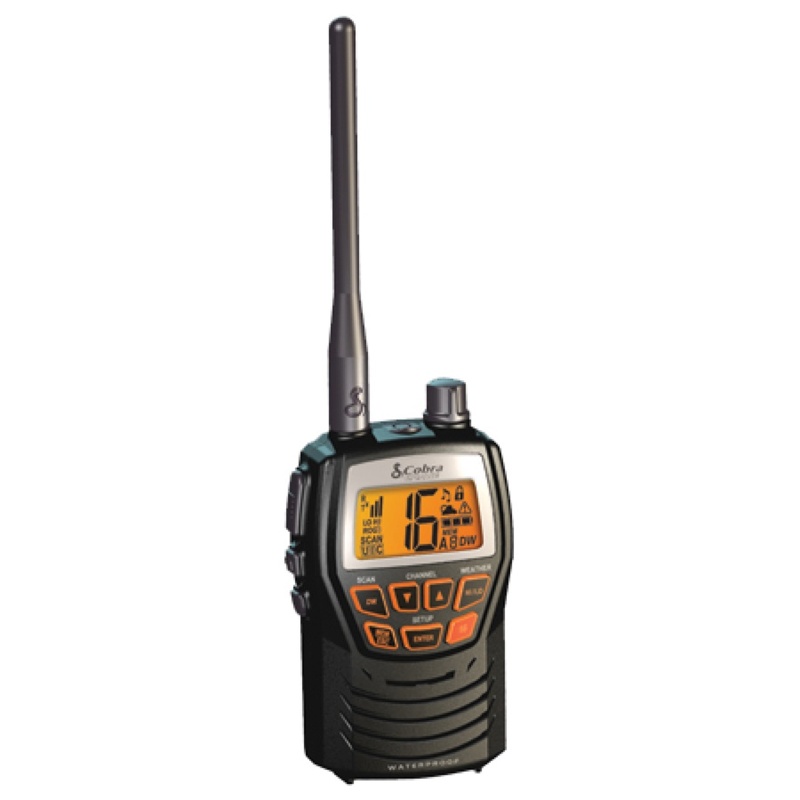Is the boating community about to take a giant leap forward with regard to VHF radio courtesy? Possibly, if boaters catch on to a new automated service for radio checks.
Radio checks are probably the most common call heard on marine VHF radios. A day on the water just wouldn’t be complete without hearing multiple requests for radio checks. Sometimes — for example, one Memorial Day weekend a few years back — they come from the same boat over and over again.
Things changed this year. There was the typical succession of radio checks so common early in the season, but after each one, there was an announcement that automated radio checks were being offered on channel 27. We had to check it out for ourselves.
The automated, 24/7 radio check service for boaters in Casco Bay comes courtesy of Sea Tow. The service is unique in that it does not require a response from other boaters or watch-standers, nor does it require special equipment. It is available through Sea Tow’s ongoing partnership with MariTEL.
“The VHF radio is an essential piece of safety equipment,” says Capt. Warner Ogden, franchise owner of Sea Tow’s Portland operation. “Knowing it works is important, and the automated service means people won’t be clogging up other channels with radio checks.”
To use the service, just tune the VHF to channel 27, key the mike and ask for a radio check just as you would on any other channel. The automated reply includes a brief plug for Sea Tow’s marine assistance service, along with a replay of your original transmission.
This lets you know exactly how well your radio is working and how you sound to others from the Sea Tow broadcast location at Port Harbor Marine in South Portland.
Ogden says the service is catching on.
“We’ve been monitoring the channel, and it’s getting a fair amount of action — more and more every day,” he says.
Along with helping boaters to verify that their VHF radios are working, the service should free up channel 9, and more importantly, channel 16, for other traffic.
While we’re on the topic of VHF radios, now is a good time to remind boaters about their proper use. The Federal Communications Commission (FCC) regulates the use of VHF radios in the U.S., and while recreational boaters no longer have to get a license, that doesn’t free them from their responsibility to follow the rules and practice common courtesy.
The U.S. Coast Guard’s Navigation Center offers a good summary on marine radio use at its website: http://www.navcen.uscg.gov/marcomms/boater.htm.
Most importantly, channel 16 is reserved exclusively for emergencies, safety and calling. It is not for radio checks, idle chatter or venting about perceived misdeeds by another vessel.
To relieve congestion on channel 16, the FCC established channel 9 as a supplementary calling channel for recreational vessels. Any vessel with a VHF radio is still expected to monitor channel 16, and since most of today’s VHF radios have a scanning function, it’s easy to scan both channels 9 and 16.
Channel 13 is designated for commercial ship navigation and for use by bridges and locks. If you’re near the Portland Ship Channel, it’s a good idea to program channel 13 into your VHF scan.
Regardless of which channel is used to call — 16 or 9 — it’s important to switch to a proper working channel right away. Few things are more annoying than to have a calling channel tied up with chatter about where the fish are biting or where cocktail hour will take place. The FCC lists channels 68, 69, 71, 72 and 78A for non-commercial use.
Other channels are off-limits to recreational traffic, at least in theory. Channels 8 and 10, commonly used as working channels by local recreational boaters, are actually designated for commercial use.
Channel 70 is set aside for distress, safety and calling purposes using digital selective calling (DSC) techniques. DSC capability is present on today’s new VHF radios, and the system is complex enough to warrant its own column in the future. In a nutshell: when set up properly, DSC helps to take the search out of search and rescue.
Finally, some people might be wondering why boaters might bother with a VHF radio now that cell phone reception has improved. First, the VHF is still the quickest and best way to get a distress signal to the Coast Guard and your fellow mariners.
Furthermore, there remain more than a few areas in Maine where cell phone service remains sketchy.
A final word on cell phones: Please don’t try to pilot your boat while talking or texting on your cell phone. Along with being dangerous, it looks downright silly.
Gail Rice of Freeport and her husband, Randy, race and cruise their Pearson 30 sloop on Casco Bay. She can be reached at:
gnrice@yahoo.com
Send questions/comments to the editors.



Success. Please wait for the page to reload. If the page does not reload within 5 seconds, please refresh the page.
Enter your email and password to access comments.
Hi, to comment on stories you must . This profile is in addition to your subscription and website login.
Already have a commenting profile? .
Invalid username/password.
Please check your email to confirm and complete your registration.
Only subscribers are eligible to post comments. Please subscribe or login first for digital access. Here’s why.
Use the form below to reset your password. When you've submitted your account email, we will send an email with a reset code.